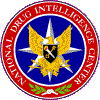ARCHIVED
![]() To Contents
To Previous Page To Next Page
To Publications Page To
Home Page
To Contents
To Previous Page To Next Page
To Publications Page To
Home Page

|
National Drug Intelligence Center Northern Mariana Islands Drug Threat Assessment October 2003 Other Dangerous DrugsOther dangerous drugs (ODDs) such as inhalants, MDMA, LSD, and diverted pharmaceuticals pose a very low threat to the CNMI. MDMA. Law enforcement authorities in the CNMI reported the first known use of MDMA (3,4-methylenedioxymethamphetamine, also known as ecstasy) on the island of Saipan in 1999. Authorities in Guam suspect that some U.S. military personnel are responsible for transporting MDMA from the U.S. mainland to Guam and possibly to the CNMI. MDMA is a synthetic, psychoactive drug with amphetamine-like and hallucinogenic properties. Users say MDMA, sometimes called the hug drug, makes them feel good. However, the drug may cause negative effects such as confusion, depression, sleep problems, anxiety, paranoia, and long-term and sometimes permanent damage to parts of the brain that are critical to thought and memory. LSD. Law enforcement officials have reported only one LSD (lysergic acid diethylamide) investigation in the CNMI in 1999. The DEA/CNMI Task Force seized a total of 1.4 ounces of LSD in this investigation. LSD is a hallucinogen that induces abnormalities in sensory perceptions. The physical effects include dilated pupils, higher body temperature, increased heart rate and blood pressure, sweating, loss of appetite, sleeplessness, dry mouth, and tremors. LSD abuse also can result in long-term disorders. LSD typically is taken by mouth and is sold as pills, capsules, liquid, and pieces of paper that have absorbed the drug. Inhalants. Some young people in the CNMI experiment with inhaling easily accessible products such as glue, gasoline, typewriter correction fluid, lacquer thinner, fabric protector, nonflammable fluorocarbons, spray paint, cooking spray, nitrous oxide, and butane. In August 1995 a 15-year-old boy lost consciousness and died after he sniffed butane gas for nearly 3 hours. This death was the first attributed to inhalant abuse in the CNMI. In response to this incident, the CNMI House of Representatives passed a bill banning the sale of products that can be used as inhalants to individuals 16 years and younger. Violation of this law carries a penalty of $500. Diverted Pharmaceuticals. Law enforcement authorities in the CNMI are attempting to minimize the threat from diverted prescription drugs by increasing their efforts to prohibit Chinese-labeled pharmaceuticals (most of which have been illegally obtained) from entering the commonwealth. In May 2000 numerous pharmaceuticals bearing Chinese labels were seized in the CNMI. None were labeled in accordance with local or federal laws, rendering them illegal. Authorities suspected that many of these pharmaceuticals were intended for distribution in the CNMI.
|
End of page.